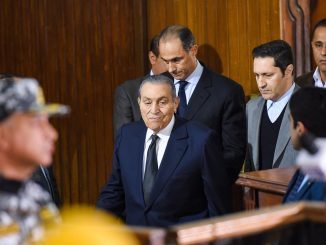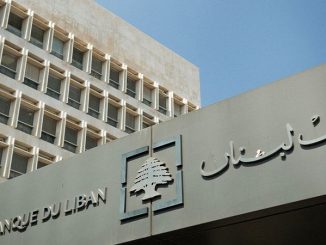
Abdel-Fattah el-Sissi dismissed Genena from his position as head of the Central Auditing Organization last March after a commission investigated his report, concluding that Genena had misled the public.
The former (CAO) head is expected to be put on trial over the charge of spreading false news and disturbing the peace that carries a potential one-year jail sentence.
“Genena, who served as a senior judge for 34 years before taking the anti-corruption post in 2012, said the prosecution is politically motivated and driven by powerful enemies inside Sisi’s government,” reported the NYT. Genena said in an interview, “I was expected not to touch certain corruption cases.” He said that he believed that he was being pursued because he had angered powerful interests — officials who became wealthy under former President Hosni Mubarak and parts of the state security services under al-Sisi. Genena wondered, “In every position I have held, I underwent security checks,” he said. “If I was so dangerous why didn’t they come after me 40 years ago?” reported the NYT.
The NYT stated that government critics consider Hesham Genena’s trial an obvious case that “exemplifies how, under al-Sisi, even senior officials are running afoul of an authoritarian crackdown that seems intent on quelling any criticism of the powerful state security apparatus.”
In the past month alone, the Egyptian authorities have launched a similar arrack on the freedom of speech and journalism in what is known by the Journalists Syndicate crisis. The crisis started when a number of journalists, as well as activists, have been arrested for being against the al-Sisi decision to give away Tiran and Sanafir islands to Suadi Arabia. As a result, the Egyptian security forces have stormed the syndicate building and arrested two journalists who were organizing a sit-in in the building. The crisis escalated when the syndicate held an emergency meeting that called for the dismissal of the Minister of Interior and the apology of the presidency. Accordingly, the head of Egypt’s Press Syndicate and two board members were to be put on trial over harboring fugitives and disseminating false news. The NYT stated that ” even the pro-Sisi Parliament has been whipped into line: In May, the speaker threatened to discipline any politician who publicly criticized Egypt’s efforts to defend its sliding currency.
Ashraf el-Sherif, a politics lecturer at the American University in Cairo, “This is an unprecedented way of dealing with corruption and the rule of law.” He added, “The message is that nobody in the state, especially key institutions, can be held accountable.”
The prosecution of Genena began in March, days after al-Sisi dismissed him by a presidential decree. His dismissal came after several planned procedures. After Genena’s corruption allegations, al-Sisi ordered a fact-finding committee to investigate his statement. The investigative committee released a report claiming that Genena’s statements and the CAO’s study were “inaccurate”, “exaggerated” and “lack credibility”. In the same path, Genena’s dismissal and other entities with the same legal status and immunity could not have happened according to the constitution until last year. However, in July 2015, al-Sisi issued a law in the absence of the parliament allowing the president of Egypt to dismiss the heads of the state’s regulatory and auditing agencies including CAO and the Central Bank of Egypt.
The CAO is an independent legal entity that monitors financial institutions and government bodies and falls directly under the presidency jurisdiction. The spread of corruption in the Egypt’s institutions was one of the main causes for the eruption of January 25 Revolution in 2011 against Mubarak’s regime’s.
Despite al-Sisi has announced that fighting corruption is a central policy after he came to power in 2013, but since then, his government has introduced a “reconciliation” law that has cleared the way for several Mubarak-era figures to have corruption convictions quashed in return for large cash payments, reported the New York Times.
Genena has been succeeded by Hisham Badawi, who worked previously for Egypt’s state security apparatus. The agency has not announced any major new cases, Ashraf al-Sherif noted. He said that “He’s a regime figure.” “It’s more or less the same old wine.”



